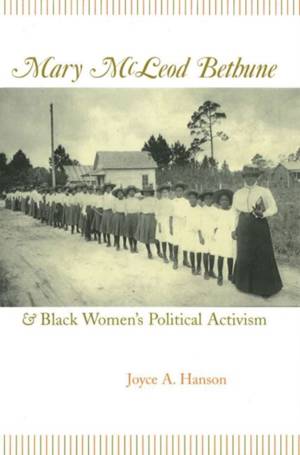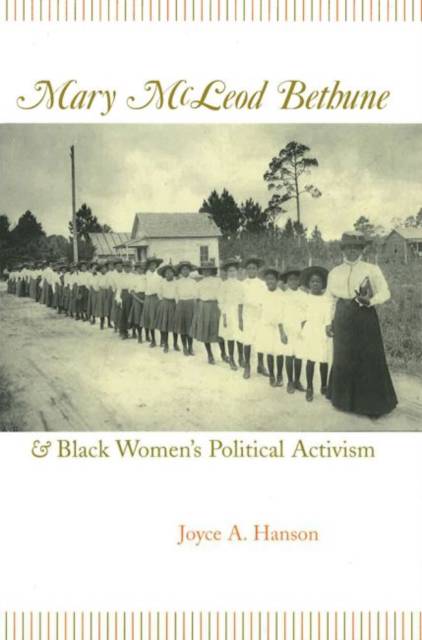
- Retrait gratuit dans votre magasin Club
- 7.000.000 titres dans notre catalogue
- Payer en toute sécurité
- Toujours un magasin près de chez vous
- Retrait gratuit dans votre magasin Club
- 7.000.000 titres dans notre catalogue
- Payer en toute sécurité
- Toujours un magasin près de chez vous
Description
Mary McLeod Bethune was a significant figure in American political history. She devoted her life to advancing equal social, economic, and political rights for blacks. She distinguished herself by creating lasting institutions that trained black women for visible and expanding public leadership roles. Few have been as effective in the development of women's leadership for group advancement. Despite her accomplishments, the means, techniques, and actions Bethune employed in fighting for equality have been widely misinterpreted.
Mary McLeod Bethune and Black Women's Political Activism seeks to remedy the misconceptions surrounding this important political figure. Joyce A. Hanson shows that the choices Bethune made often appear contradictory, unless one understands that she was a transitional figure with one foot in the nineteenth century and the other in the twentieth. Bethune, who lived from 1875 to 1955, struggled to reconcile her nineteenth-century notions of women's moral superiority with the changing political realities of the twentieth century. She used two conceptually distinct levels of activism--one nonconfrontational and designed to slowly undermine systemic racism, the other openly confrontational and designed to challenge the most overt discrimination--in her efforts to achieve equality.Hanson uses a wide range of never- or little-used primary sources and adds a significant dimension to the historical discussion of black women's organizations by such scholars as Elsa Barkley Brown, Sharon Harley, and Rosalyn Terborg-Penn. The book extends the current debate about black women's political activism in recent work by Stephanie Shaw, Evelyn Brooks-Higginbotham, and Glenda Elizabeth Gilmore.
Examining the historical evolution of African American women's activism in the critical period between 1920 and 1950, a time previously characterized as "doldrums" for both feminist and civil rights activity, Mary McLeod Bethune and Black Women's Political Activism is important for understanding the centrality of black women to the political fight for social, economic, and racial justice.
Spécifications
Parties prenantes
- Auteur(s) :
- Editeur:
Contenu
- Nombre de pages :
- 264
- Langue:
- Anglais
- Collection :
- Tome:
- n° 1
Caractéristiques
- EAN:
- 9780826214515
- Date de parution :
- 14-03-03
- Format:
- Livre relié
- Format numérique:
- Genaaid
- Dimensions :
- 160 mm x 238 mm
- Poids :
- 553 g







